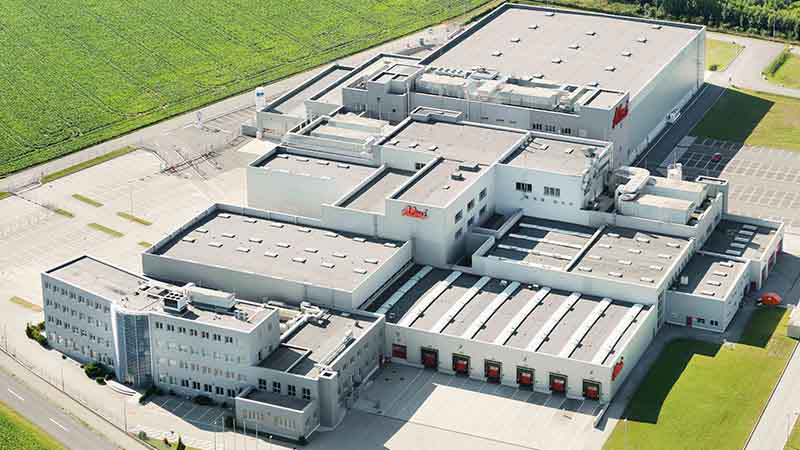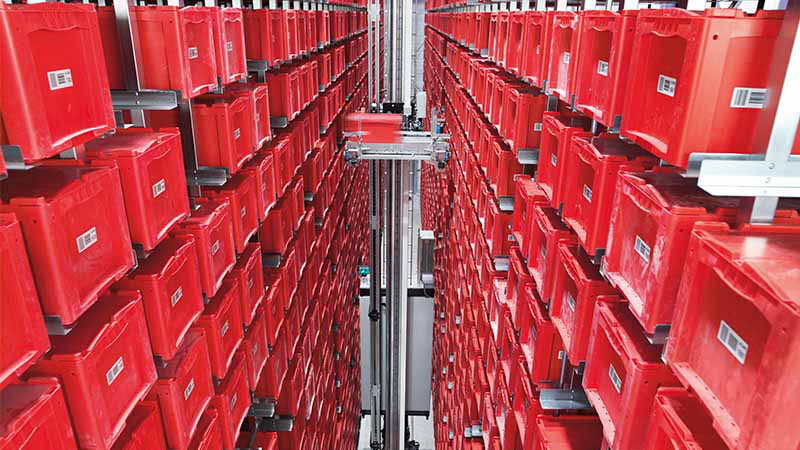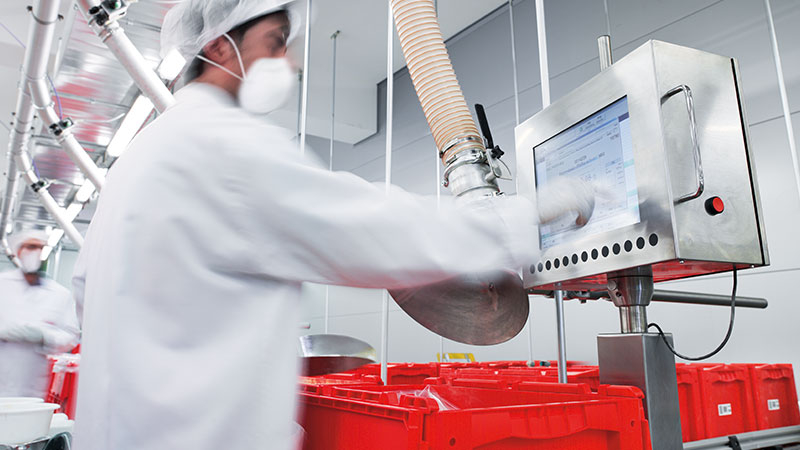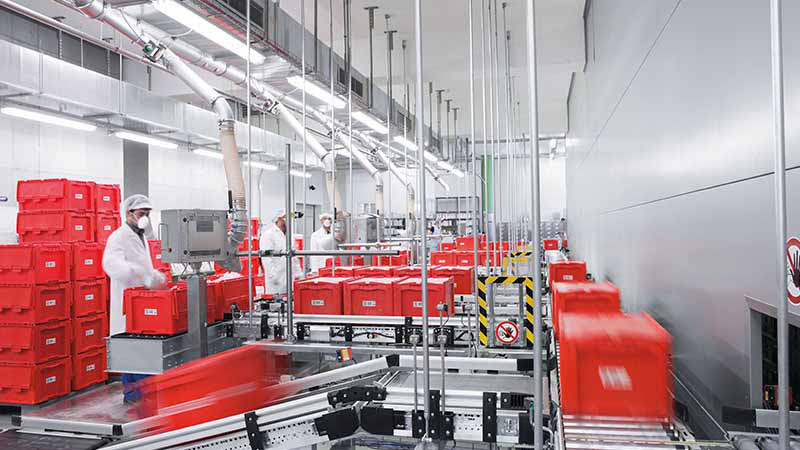- TGW updated the seasoning specialist's warehouse during ongoing operation
- Thanks to hardware and software updates, energy savings of up to 20 percent are possible
- Project ensures long-term system availability
(Marchtrenk, Austria, September 27, 2022) In order to form resilient value chains and delivery commitments to customers, you need high-performance warehouse automation. Almi, the spice specialist based in the Upper Austria region, commissioned TGW Logistics Group to update its warehouse in Oftering. The TGW experts implemented the project during ongoing operations and in record time, despite the effects of the COVID-19 pandemic.
Everyone's got to eat! For Almi, a manufacturer of spice blends, this proverb is a blessing and a curse. It's a blessing because the company, who is focused strategically on diversification and internationalization, has experienced constant growth since its founding in 1931. From dilettante to dedicated, gourmets at every level in 62 countries enjoy foods seasoned with high-quality Almi products. The Upper Austrian company earns approximately $128 million USD in sales per year, with almost 90 percent of their products being exported.
Retrofit during live operation
However, success in the food industry has its price. Because customers get hungry even on holidays, unlike other industries, Almi cannot afford lengthy breaks in production. This poses major time management challenges for larger-scale construction or modernization projects.
Early on, the family-owned enterprise ruled out expanding its facilities: "Sustainability is of great importance to Almi. We do not want to pave over more green areas, so we decided from the beginning to optimize the existing facility so that we will be well equipped for the future," reports Stefan Lackinger, Almi's Production Manager. In order to uphold delivery commitments and lay the foundation for future growth, Almi instead opted for a retrofit of the automated tote warehouse and its approximately 10,000 storage locations.

In 2006, Almi built a warehouse on a parcel of approximately 92,000 ft2, with the contract going to TGW. The heart of the initial system is a three-aisle, automatic mini-load warehouse; tote buffer; and carton, tote, and pallet conveyor systems on three levels. To boost the performance, the system was equipped with energy-efficient conveyor technology. In 2017, the seasoning specialist commissioned TGW to update the warehouse management system (WMS).
Together into a green future
Almi was very pleased with how the software update went, and as a result, Almi selected TGW as a partner of choice to join it on the path towards a green future. The initial discussion came from TGW’s retrofit experts, who presented a multi-prong concept after noticing that Almi’s components were outdated: changing out a storage and retrieval machine, replacing the mechatronics of the Commissioner lifting beam system, updating three transfer carriages and one belt-driven lift, and implementing new control technology.
TGW offered proactive suggestions because there was a danger that if the current technology broke down, it would become more expensive to repair or not have the correct parts available at all. TGW put together multiple designs, from which Almi selected one. "In the retrofit area, each project is customer-specific— therefore, experience is of tremendous importance," emphasizes Josef Fritz, Sales Project Manager at TGW.

Mustang E+ energy-efficient storage and retrieval machines
A portion of the investment, which was in the mid-six figures, was designated to replacing the storage and retrieval machine. TGW provided a Mustang E+ storage and retrieval machine of the latest generation. Its advantages: it weighs less than older units and has a state-of-the-art control system that does not require anti-oscillation technology, making it possible to save energy.
The world of retrofitting is, in theory, similar to good food: even the best recipe may not turn out so delicious if the cook is inexperienced. TGW looks back on more than half a century of experience, with the retrofit area in particular experiencing strong growth. The system integrator now handles five times as many retrofit projects annually as it did ten years ago— and works systematically for each project, because, as Markus Kammerhofer, Director of Sales Retrofit at TGW emphasizes, "A system downtime would be a disaster for any supply chain manager." Over the years, TGW has compiled a list of seven success factors for retrofit projects:
- Consider the lead time and start early enough
- Choose experienced partners and project managers
- Develop a structured plan
- Integrate specially developed retrofit solutions
- Create a comprehensive functional specification
- Clearly define migration phases
- Intensive employee training
Planning and preparation as success factors
The first meeting was held in early 2021, while in the summer, the team drafted a project plan, with the functional specifications following. The experts then defined the migration steps and the tight schedule. The timeline set the bar high for all those involved. The objective: executing the entire project around the Christmas and New Year's holidays to reduce the standstill to a minimum.
The TGW specialists arrived on December 21 and stayed at Almi until January 7, 2022, working every day except New Year's Eve. However, the tight schedule was not the only challenge. "All steps up to the go-live on January 7 had to be planned in detail," says Fritz. Nevertheless, it was not possible to fully complete the project by January 6 as the plan had originally called for. However, this was not the fault of TGW. As a result of the COVID-19 pandemic and worldwide supply chain bottlenecks, the hardware was not replaced until April.

Energy savings of up to 20 percent
Despite the difficulties encountered, all aspects of the retrofit were successfully completed in late April 2022. Lackinger, the Almi Production Manager, is highly satisfied with the result. He reports that the system availability is boosted and the cost of spare parts for maintenance work has been lowered. The company's green logistics strategy is also taking an important step forward, with ISO 50002 energy audit compliance being just one example. "Energy savings of up to 20 percent are now possible with warehouse automation. In the past, unneeded braking energy of the storage and retrieval machine was simply lost. Now we feed it directly back into the grid. Thanks to the modernization done by our partner TGW, we look to a greener future with confidence."




